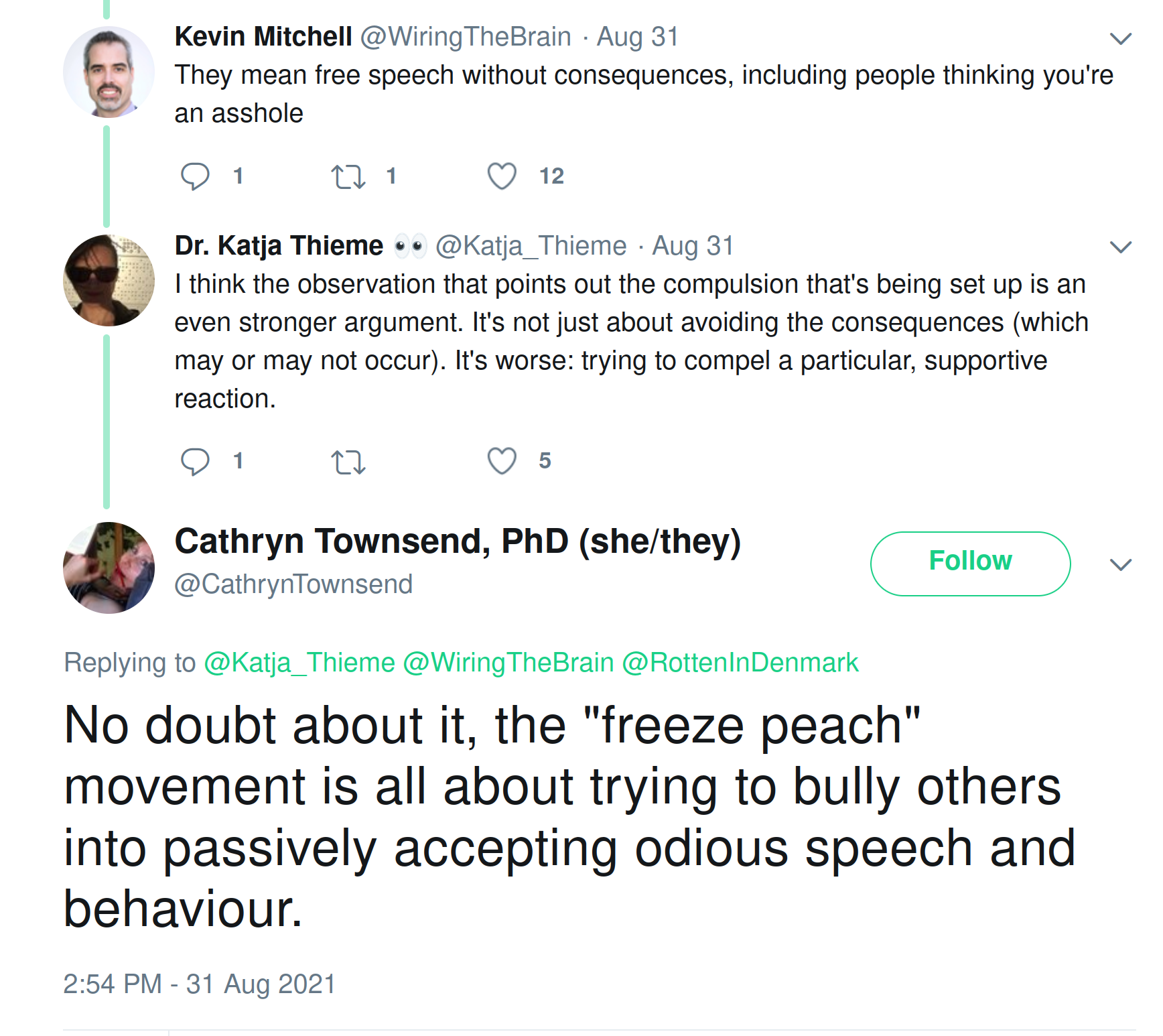This is Bryan Pesta. He’s your typical nice guy 50-something who enjoys the good things in life. Unfortunately, he was also a bit too principled and did some good science on race differences. This ended up getting him fired. Steve Sailer has chronicled this a few times, but let me go into more detail.
Background
Some months ago our colleague Bryan Pesta was fired from his university, Cleveland State University. Bryan had previously been their top academic in his department with an H index of 18 and was in the top 9% of academics (Researchgate) and published no less than 12 articles in Intelligence, the most read journal for intelligence research. Bryan’s research had not previously generated any controversy, but in 2019, he published this paper with our research group:
- Lasker, J., Pesta, B. J., Fuerst, J. G., & Kirkegaard, E. O. (2019). Global ancestry and cognitive ability. Psych, 1(1), 431-459.
Using data from the Philadelphia Neurodevelopmental Cohort, we examined whether European ancestry predicted cognitive ability over and above both parental socioeconomic status (SES) and measures of eye, hair, and skin color. First, using multi-group confirmatory factor analysis, we verified that strict factorial invariance held between self-identified African and European-Americans. The differences between these groups, which were equivalent to 14.72 IQ points, were primarily (75.59%) due to difference in general cognitive ability (g), consistent with Spearman’s hypothesis. We found a relationship between European admixture and g. This relationship existed in samples of (a) self-identified monoracial African-Americans (B = 0.78, n = 2,179), (b) monoracial African and biracial African-European-Americans, with controls added for self-identified biracial status (B = 0.85, n = 2407), and (c) combined European, African-European, and African-American participants, with controls for self-identified race/ethnicity (B = 0.75, N = 7,273). Controlling for parental SES modestly attenuated these relationships whereas controlling for measures of skin, hair, and eye color did not. Next, we validated four sets of polygenic scores for educational attainment (eduPGS). MTAG, the multi-trait analysis of genome-wide association study (GWAS) eduPGS (based on 8442 overlapping variants) predicted g in both the monoracial African-American (r = 0.111, n = 2179, p < 0.001), and the European-American (r = 0.227, n = 4914, p < 0.001) subsamples. We also found large race differences for the means of eduPGS (d = 1.89). Using the ancestry-adjusted association between MTAG eduPGS and g from the monoracial African-American sample as an estimate of the transracially unbiased validity of eduPGS (B = 0.124), the results suggest that as much as 20%–25% of the race difference in g can be naïvely explained by known cognitive ability-related variants. Moreover, path analysis showed that the eduPGS substantially mediated associations between cognitive ability and European ancestry in the African-American sample. Subtest differences, together with the effects of both ancestry and eduPGS, had near-identity with subtest g-loadings. This finding confirmed a Jensen effect acting on ancestry-related differences. Finally, we confirmed measurement invariance along the full range of European ancestry in the combined sample using local structural equation modeling. Results converge on genetics as a potential partial explanation for group mean differences in intelligence.
Though written in academic language, what this study basically showed is that genetically measured ancestry among Americans predicts their intelligence levels, and this is also the case when controlling for parental social status, social race (parent or self-perceived), and visual racial features (skin color, eye color, hair color). Why is this a bombshell? Well, egalitarian academics had confidently claimed that 1) this is the right method to test the hereditarian model of race gaps, and 2) there is no such link (a conclusion they based on outdated studies using small samples and blood groups as proxies). For instance, here is Richard Nisbett in 2009:
Racial Ancestry and IQ
All of the research reported above is most consistent with the proposition that the genetic contribution to the black/white dif-ference is nil, but the evidence is not terribly probative one way or the other because it is indirect. The only direct evidence on the question of genetics concerns the racial ancestry of a given individual. The genes in the U.S. “black” population are about zo percent European (Parra et al., 1998; Parra, Kittles, and Shriver, 1004). Some blacks have completely African ancestry, many have at least some European ancestry, and some—about to percent—have mostly European ancestry. Does it make a difference how African versus European a black person is? A hereditarian model demands that blacks with more European genes have higher IQs. Herrnstein and Murray (1994) and Rushton and Jensen (2005), as it happens, scarcely deal with this direct evidence.
In response to the work in Psych in 2019, egalitarian activists promptly set in action to get rid of the problem, that is, Bryan. First they lodged a complaint against the journal, where Bryan had recently been appointed the editor-in-chief role. After they succeeded in having him fired as the editor, they started looking for how to get him fired from his professorship too. You see, when you want to claim that The Science Is Settled, you look stupid when there’s a tenured, full professor of the relevant field who says the opposite of what you claim. So you have to marginalize them and ideally have them fired. So they hatched a plan. But who is they? Now that the lawsuit is public, we can point to the public filings showing who is responsible:
64) Turning back to Dr. Pesta’s controversy, in response to “Global Ancestry and Cognitive Ability,” individuals from both inside and outside of the CSU community claimed said article was “racist,” and launched a campaign to have him fired over the said article.
65) Four such individuals who complained to CSU are Dr. Jedidiah Carlson, Dr. Cathryn Townsend, Kevin Bird, and Os Keyes.
There is a fifth hidden man, and that is Oliver D Smith. He writes nearly all the hate pages on RatWiki under various pseudonyms. In case of Bryan Pesta, Oliver Smith used the account Jinx to make the page back in 2018.
He has been editing the page for the last 5 years or so under various pseudonyms: Jinx, Bongolian (supposedly his brother), Tobias, Johns, Cog, Its JJ, Keyes is a legend, Ernor. Last edit was a few weeks ago.
You can find lots of information about this individual on certain non-Woke sites, but he takes good care to get Google to remove anything negative about him, so you have to know where to look to find out who is doing stuff behind the scenes. Oliver is your standard basement dwelling internet stalker. No job, no girlfriend, no happiness in life, only computer games and endless stalking.

Os Keyes = Oliver Keyes = Ironholds
Os Keyes is really Oliver Keyes. Oliver Keyes turned transsexual at some point and changed his name. He is a proud supporter of Antifa:
Different angle:
The second amusing thing about Oliver Keyes is that he was also the one who harassed us back in 2016 by writing a blogpost and pinging his friends in the media to cause the OKCupid data release affair. He filed legal complaints against me in Denmark, though nothing came out of them. He has his own long history of disgraceful behavior online under his pseudonym Ironholds. Of course, it’s all hidden from the search engines, so you have to go the various archival and look for yourself.
Kevin Bird
You are probably familiar with Kevin Bird already. He’s a PhD student in plant genomics. However, on the internet he has a second career as a communist activist and prolific Redditor under the pseudonym stairway-to-kevin. Unsurprisingly, Kevin Bird is a big fan of burning down everything to bring about his dream communist utopia:
Jedidiah Carlson
Jedidiah Carlson is friend of Kevin’s, and he’s also a geneticist:
Like Kevin, during the BLM craze he showed his true colors on Twitter flying the Antifa flag (the three arrows flag you see above). I don’t see any archives of this, let me know if you find one.
Unlike Bird, Carlson is an actual human geneticist. He hasn’t really produced any work of note. Almost all his citations come from being a middle author on a paper with 50+ authors.
Cathryn Townsend
Cathryn Townsend is not really very exciting. She’s a run-of-the-mill woke White woman, Dr., PhD, She/Her. You can sample her Twitter for the usual delusional takes:

So of the 5 attackers, 2 are geneticists, one a human geneticist. Both are students or were at the time. In terms of scientific authority, then, their credibility is not particularly high. None have published any work on human intelligence research. So while they can claim to represent The Science, their own credentials are mediocre at best.
The tactic
How does one get a professor fired? Well, you first want local support, so you reach out to the local Woke organizations, i.e. student unions, various communist fronts and the actual communist groups. Then you give them the target. They start harassing the target by filing frivolous complaints, disrupting lectures, mass emailing your colleagues to get you ostracized. While this is ongoing, you draw up the legal works. To get someone with tenure fired, you need heavy ammunition. So what do you do if all you really have is that they published research you hate? Well, just try everything. So that’s what they did. They filed a list of some 30+ claims and hoped something would stick. The list of their complaints is not public as far as I can tell, but it involved just about everything you can think of. This strategy is called the shotgun approach. Try everything and see what sticks. Eventually, the university threw away most of their complaints but kept 4, which are those used to get poor Bryan fired. This was the same tactic used against Helmuth Nyborg some 10 years prior in Denmark.





